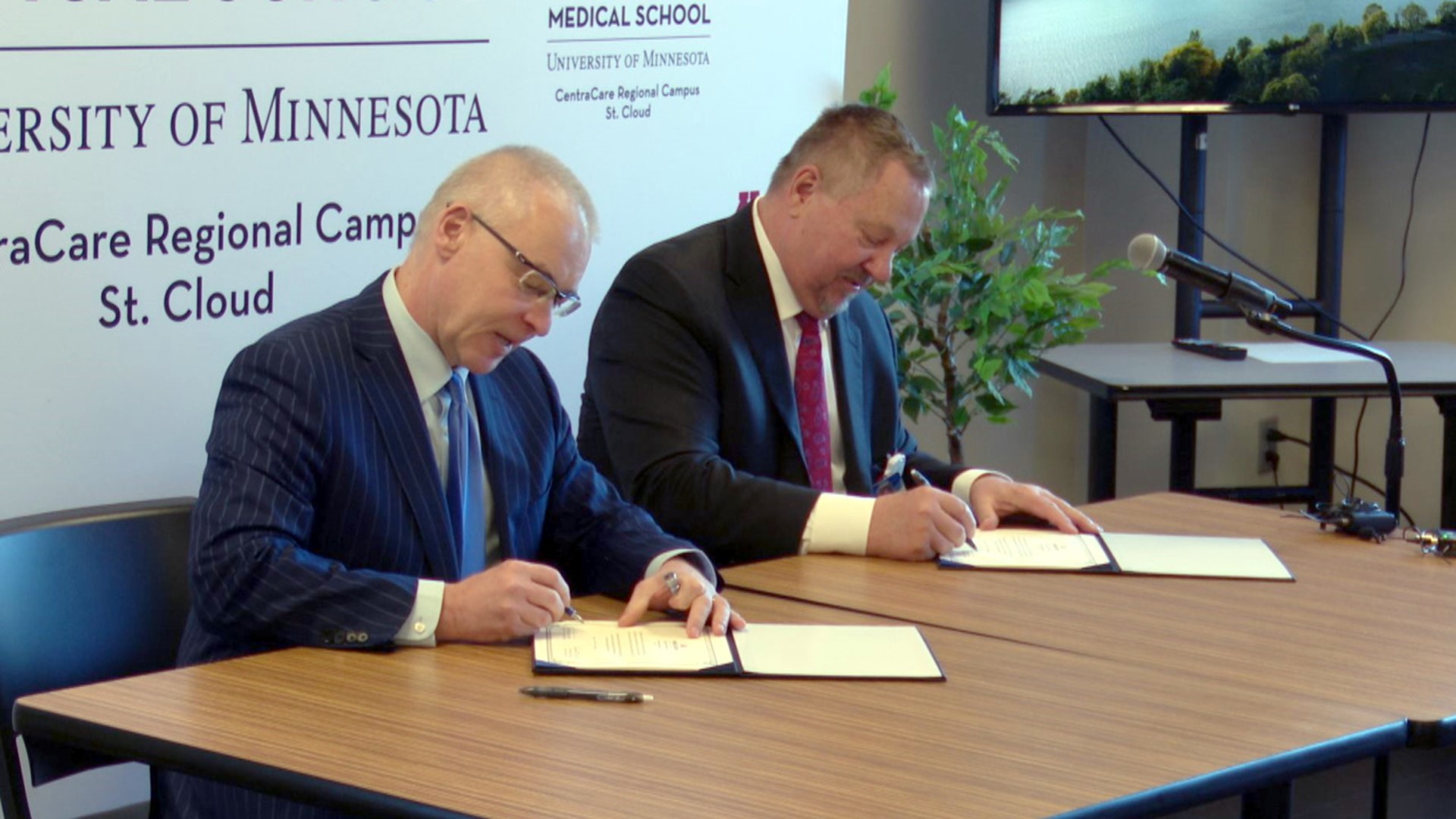ST. CLOUD, Minn. — The dream of turning a vacant office building into a training ground for physicians took a big step towards reality on Monday.
The University of Minnesota Medical School and CentraCare health system formalized an agreement to add a St. Cloud campus, beginning in the autumn of 2025. Dr. Jakub Tolar, the dean of the medical school, and Dr. Ken Holmen, the CEO of CentraCare, signed the memorandum before a crowd of lawmakers and other stakeholders.
"This is a monumental moment for the state of Minnesota," Dr. Tolar told KARE.
"If you look at this from a perspective of somebody who lives in what we call healthcare deserts or maternity deserts that means that woman is driving two hours back and forth to have a simple clinical visit, minus 20 degrees, two feet of snow."
Tolar noted that it's been 50 years since the medical school opened the Duluth campus, but that hasn't made much of a dent in solving the shortage of care providers in more rural areas, often referred to as Greater Minnesota.
"If you want physicians to practice in Greater MInnesota you get them from Greater MInnesota, you train them there, and they will come back to the communities that are theirs."
The new campus will accept its first class of 24 students in 2025 and will reach a full capacity of 96 students by the fourth year. CentraCare, a system with 30 clinics and nine hospitals, already hosts some medical residents who've graduated from medical school.
CentraCare's leader, Dr. Ken Holmen, said the building was previously used by IT workers, who have since moved to other locations or are working from home. It's strategically located next to the CentraCare Plaza, which houses physicians and other healthcare providers.
"CentraCare has the other assets out here; hospitals, clinics, pharmacies, physicians and nurses," Dr. Holmen told KARE.
"So, the collaboration between the University of Minnesota and CentraCare is one where we can make sure they get a world-class education, both from an academic perspective but also from a clinical perspective."
Holmen and Tolar both referred to the dwindling numbers of doctors in Greater Minnesota, which affects both health outcomes and the sense of community.
"It’s also about pride of town and place. It’s about economic development, keeping main street open. It’s about creating a vibrant future for the future generations," Holmen remarked.
He said the total project will cost roughly $100 million. Some of that will come from CentraCare's operating budget and some from the CentraCare Foundation. That foundation has pledged $50 million and has already raised $11 million of that.
The Minnesota Legislature dedicated $15 million to the project during the 2023 Session. Area lawmakers will seek an additional $13 million in bonding in the 2024 Session.
"We've learned that when you have a medical school in a community, students that come here and go to a medical school stay in that community," Rep. Bernie Perryman, a former member of the CentraCare Foundation board, explained.
"So, after graduation that will be a benefit to our city of St. Cloud. They’ll stay. They’ll be residents here and they’ll raise their families here."
Rep. Perryman said some of the prospective medical school students that have visited the CentraCare site have been surprised to hear there's plenty of free parking. That's definitely not the case with most medical schools located on campuses in metro areas around the nation.

